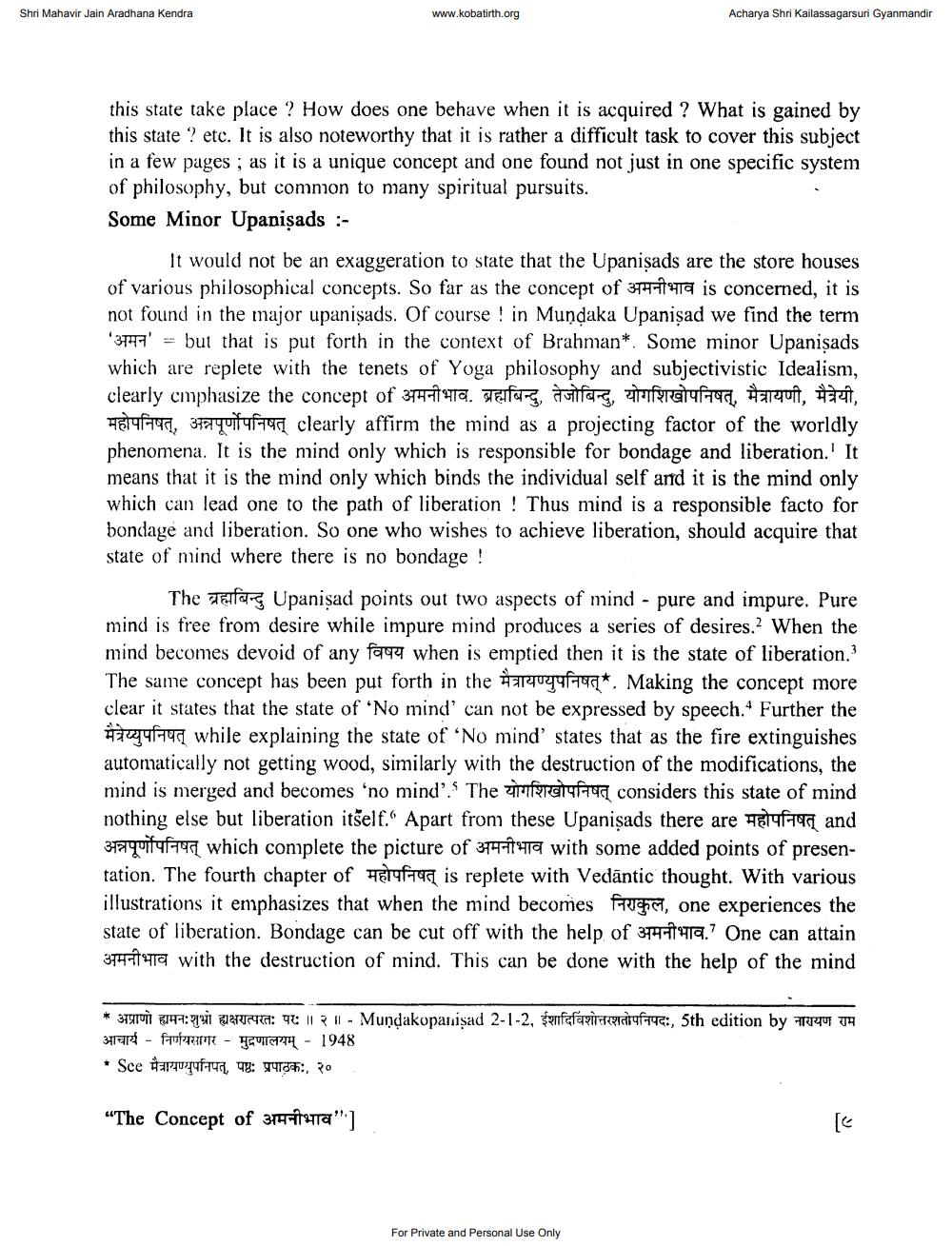________________
Shri Mahavir Jain Aradhana Kendra
www.kobatirth.org
Acharya Shri Kailassagarsuri Gyanmandir
this state take place ? How does one behave when it is acquired ? What is gained by this state ? etc. It is also noteworthy that it is rather a difficult task to cover this subject in a few pages ; as it is a unique concept and one found not just in one specific system of philosophy, but common to many spiritual pursuits. Some Minor Upanişads :
It would not be an exaggeration to state that the Upanisads are the store houses of various philosophical concepts. So far as the concept of 374-1419 is concerned, it is not found in the major upanişads. Of course! in Mundaka Upanisad we find the term
3747' = but that is put forth in the context of Brahman* Some minor Upanisads which are replete with the tenets of Yoga philosophy and subjectivistic Idealism, clearly emphasize the concept of 37H-1972. Efs, ofere, riferatyf1971, puit, rent, महोपनिषत्, अन्नपूर्णोपनिषत् clearly affirm the mind as a projecting factor of the worldly phenomena. It is the mind only which is responsible for bondage and liberation.' It means that it is the mind only which binds the individual self and it is the mind only which can lead one to the path of liberation ! Thus mind is a responsible facto for bondage and liberation. So one who wishes to achieve liberation, should acquire that state of mind where there is no bondage !
The ularg Upanisad points out two aspects of mind - pure and impure. Pure mind is free from desire while impure mind produces a series of desires. When the mind becomes devoid of any face when is emptied then it is the state of liberation. The same concept has been put forth in the ruyf147*. Making the concept more clear it states that the state of "No mind' can not be expressed by speech. Further the
yuftus while explaining the state of "No mind' states that as the fire extinguishes automatically not getting wood, similarly with the destruction of the modifications, the mind is merged and becomes 'no mind'. The rifarufu considers this state of mind nothing else but liberation itself. Apart from these Upanisads there are Eleft and
अन्नपूर्णोपनिषत् which complete the picture of अमनीभाव with some added points of presentation. The fourth chapter of HETYSTYC is replete with Vedāntic thought. With various illustrations it emphasizes that when the mind becomes frugt, one experiences the state of liberation. Bondage can be cut off with the help of 374-1979.? One can attain 37-479 with the destruction of mind. This can be done with the help of the mind
* 340 214: CHA: RI - Mundakopanişad 2-1-2, $onfefavirerereref19c:, 5th edition by T40 T4 37137 - FAUTETTE - HEUTH - 1948 • Sce #artu4144, ue: 40:, PO
"The Concept of अमनीभाव""]
For Private and Personal Use Only




